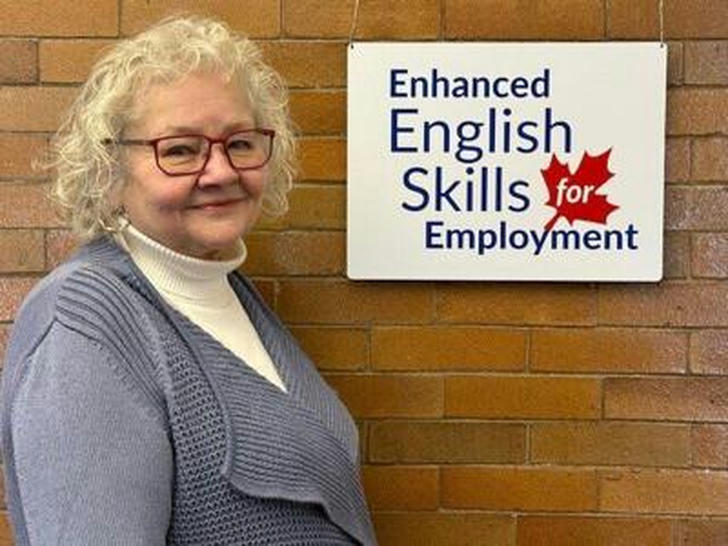Canadian English courses: official support help find high-paying employment
Navigating life and employment in Canada often starts with mastering English. Government-supported English courses programs are available to help individuals improve communication without tuition fee worries, build workplace readiness, and connect with career development opportunities. Programs such as Language Instruction for Newcomers to Canada (LINC) and English for Employment (E4E) focus on practical language skills, career preparation, and social integration. Explore these structured learning paths and see how they contribute to personal and professional growth.

I. Language Instruction for Newcomers to Canada (LINC)
LINC is a nationally supported initiative delivered through certified training centers and funded by Immigration, Refugees and Citizenship Canada (IRCC). Designed for adults who are new to Canada, LINC aims to develop foundational English skills while supporting integration into communities and workplaces.
Program Highlights:
Language Development: Instruction in English speaking, reading, listening, and writing tailored to daily life and employment needs.
Workplace Communication: Helps build vocabulary and interaction skills for interviews, meetings, and professional correspondence.
Flexible Access: Available online or in person, depending on regional offerings; learners are matched with appropriate levels after assessment.
Civic Orientation: Covers Canadian laws, healthcare, community services, and employment standards.
Additional Supports:
Some centers offer subsidized child-minding and transportation support to assist learners facing logistical barriers.
Participants gain access to pathway planning for advanced education, trades certification, and job preparation.
Group sessions often include community resource introductions and citizenship information workshops.
Participant Data & Experience:
A 2022 IRCC evaluation found that over 80% of LINC graduates reported improved communication confidence within six months.
Ana, a former customer service associate from Colombia, completed the intermediate level in Toronto and later joined a college certificate program in office administration. Within one year of completing both, she entered the workforce in a bilingual office support role.
II. English for Employment (E4E)

E4E is a government-supported employment-focused program designed to improve workplace readiness through targeted English language training. Delivered through local employment centers and training partners, E4E helps bridge the gap between language learning and job market participation.
Weekly Schedule Options:
Morning Track: Tuesdays & Thursdays, 9:30 a.m. – 12:00 p.m.
Evening Track: Tuesdays & Thursdays, 6:30 p.m. – 9:00 p.m.
Program Components:
Communication & Digital Literacy: Focus on common work-related documents, phone and email etiquette, and job application tools.
Career Skills Development: Includes resume writing, mock interviews, networking strategies, and understanding employment contracts.
Sector-Specific Content: Offers language modules tied to trades, hospitality, administration, and IT.
Employment Linkages: Programs may connect participants with job fairs or employer info sessions, depending on region.
Outcomes and Example:
A regional study by a Toronto employment agency in 2023 showed that nearly 7 out of 10 E4E participants secured employment or post-secondary enrollment within six months of program completion.
Farid, a systems technician from Jordan, joined E4E in Mississauga. After enhancing his presentation skills and resume structure, he accessed employer referrals through the program and transitioned into a tier-2 technical support role within four months.
III. Other Government-Backed English Programs
Beyond LINC and E4E, additional programs are available for learners seeking specialized or industry-aligned language support:
Occupation-Specific Language Training (OSLT): Developed in partnership with Ontario colleges, this program offers language training for individuals in business, technology, skilled trades, and healthcare. A 2021 report by Colleges Ontario found that over 85% of OSLT participants improved both professional vocabulary and job readiness.
English for Work: Available in several provinces, this course emphasizes job-seeking communication—such as safety protocols, reporting, and customer service exchanges. Course durations vary by province and provider but typically range from 4 to 12 weeks.
Enrollment Process
Check eligibility through an IRCC-approved provider
Schedule and complete a language assessment (CLB)
Select an approved training provider offering the desired course
Register through the provider’s intake coordinator
Note: Seats may be limited in high-demand regions. Waitlist policies apply in some cases.
Moving Forward with Confidence
English proficiency opens doors to social and career development across Canada. Programs like LINC, E4E, and other targeted options offer structured learning and relevant workplace preparation.
